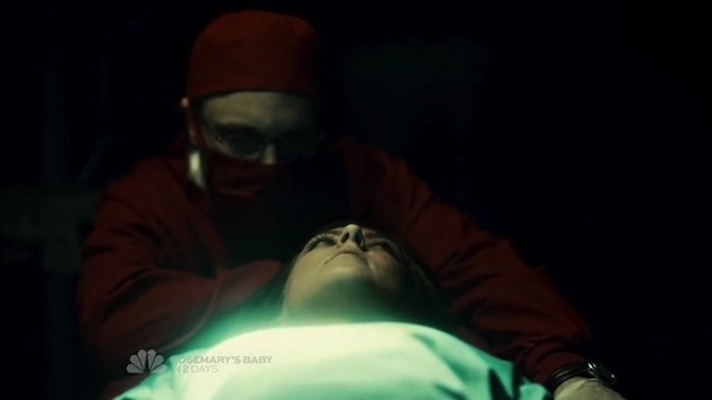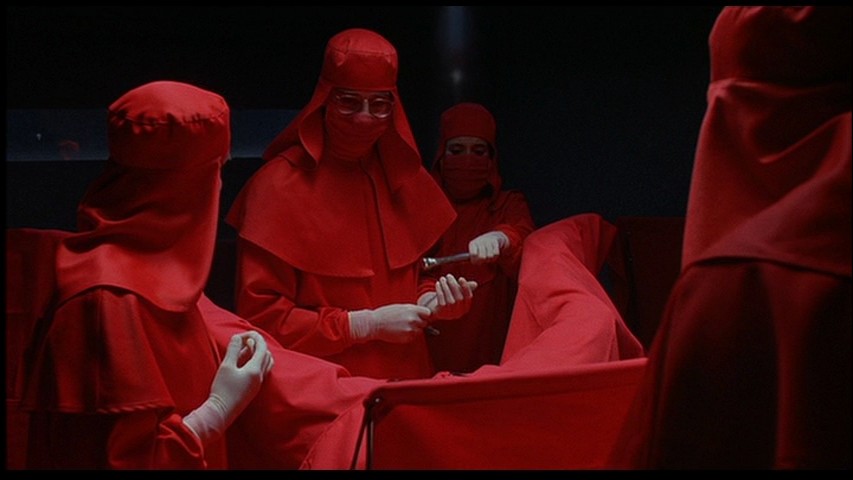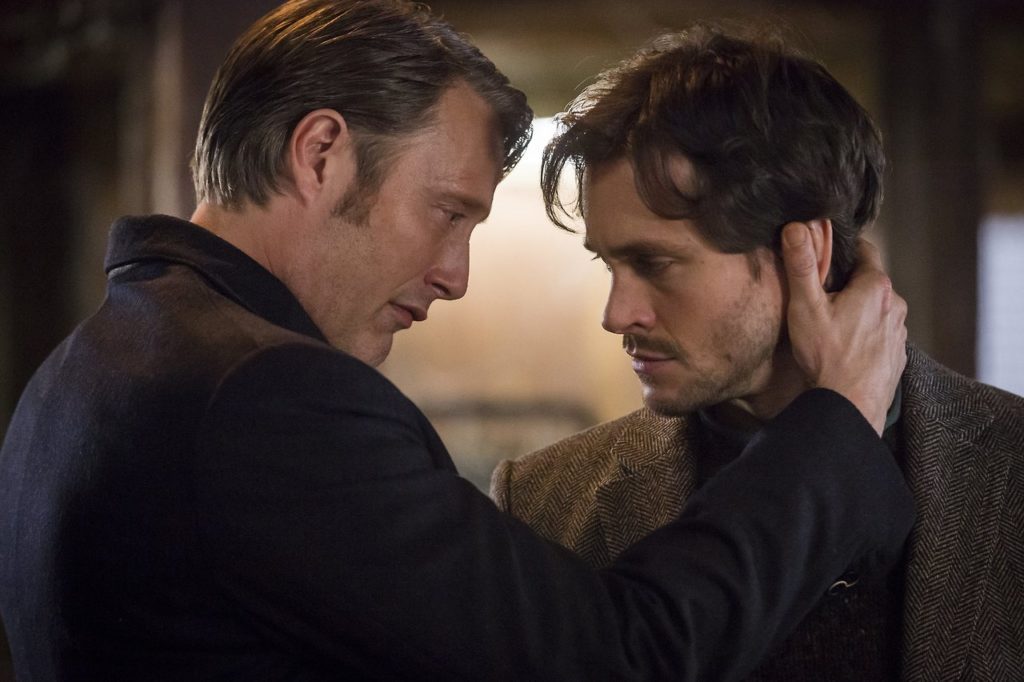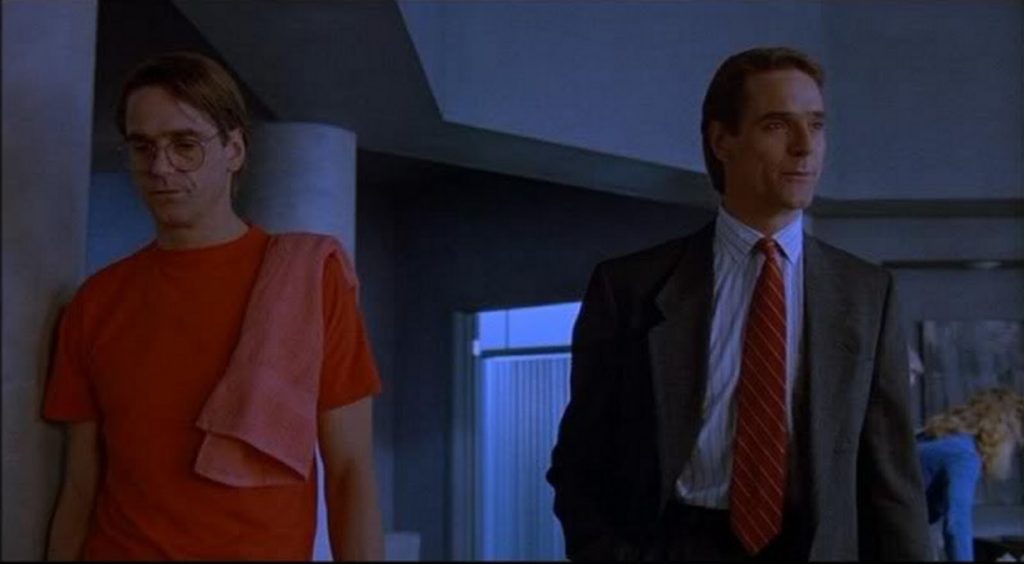Two pieces of horror have recently haunted me and stuck in my open craw (not surprisingly considering my obsessive tendencies): David Cronenberg’s Dead Ringers and the recently cancelled TV series Hannibal. Hannibal and Ringers are both sensual yet artificial, emotional and, in the grand tradition of romanticism, twisted into perversity. They prize aesthetics over morality, which can be appreciated in the Outraged Internet era (though Hannibal is a show that commendably does not glorify or depict sexual assault). But they both share artistic themes in common, and the emphasis in either on friendship and brotherhood, the “single soul in two bodies”, also weighs on my mind.
As much as the left praises social cooperation and mutual aid, there’s a part of us that, I believe, is naturally repelled a little by this idea. Individualism isn’t a right or left impulse. It’s more a singular need or necessity, one that is either admirable or horrific, or somewhere in between. That’s why the idea of a twin or an “other half” can seem so beguiling and utterly nightmarish. To have loneliness be permanently nonexistent, to be unable to separate oneself at all, to not be able to exist without the other – to be a twin, or really be in any symbiotic relationship, exists in the uncanny.

Both Dead Ringers and Hannibal explore how a friendship, or love of any kind, can be inherently destructive, how your personality shifts and molds with the other person. In Dead Ringers, Beverly and Elliott are identical twin gynecologists (both played brilliantly by Jeremy Irons) who share everything, including women. Beverly, however, falls for an actress, Claire, who introduces him to drugs (though she is never portrayed as totally responsible). The twins’ relationship slowly descends into madness and extreme behavior, culminating in ritual violence. Similarly, Hannibal features serial killer/cannibal Hannibal Lecter and investigator Will Graham, polar opposites, fascinated by and drawn to one another. As Will says to one character “I’ve never known myself as well as I know myself when I’m with him.” The empath and the monster bring out the “best” in each other, and their relationship often erupts in bouts of violence. In Ringers and Hannibal, the pairs can’t live with or without each other, an uneasy mix of murderousness and raw need.

Like Yukio Mishima and Jean Genet, two queer novelists obsessed with life and violent acts as nihilistic, ultra-perceptive experience, Hannibal is a series where the violence committed by its protagonists is itself an erotic, powerful experience. The weekly killers featured in the first and early second seasons created “murder tableaux”, objects of art comprised of human bodies twisted and mutilated into the killers’ personal visions – as Will says as he imagines himself creating these nightmares “This is my design.” When psychiatrist Bedelia du Maurier says to Hannibal that “You no longer have ethical concerns, only aesthetic ones,” she is speaking of the power and general interest of the series itself. Like Genet and Mishima, Hannibal doesn’t care much about actual, rational life experiences because they’re rarely as interesting as the romantic and powerful, inflamed beyond belief and the pale cast of thought. Ringers is grounded in a semi-realistic situation, but is much more interested in the twins’ relationship overtaking all other concerns, earthly and otherwise, and how the “art of glamour,” as Elliot calls it, penetrates everything around them.

Though Ringers’ final violent scenes are rooted in genuine tragedy and pain, Hannibal‘s, oddly, are not. The show instead grapples with evil as pervasive and sensationally beautiful and violence as an artistry and eroticism (especially queer eroticism) unto itself. SPOILERS
The ending of the last season is fully in tandem with those ideas then, as the nuclear family Will Graham tries to return to is simply not as appealing as the beauty and peace Hannibal can offer him, even in death. When Will topples himself and Lecter off of the cliff, it is both a rejection of Lecter’s murderous vision for them and a final, orgasmic climax, la petite mort in action. END SPOILERS

Dead Ringers and Hannibal scare and intrigue because they brutally shake off the rational, the nuclear family – they suggest primal, hidden impulses, the thirst to hunt and kill, to become one with another in the best and worst ways, that we all have even in the trappings of rigid formalism and digital perfection. They create dreams from nothing and then jump into their logic, into the fear of being one with another and the power of companionship, with a terrible sick relish. They move horror further and further into the subconscious, into dark places that frighten and excite and glitter with terrible ecstasy.
https://youtu.be/e5f8dMw_Zz4

